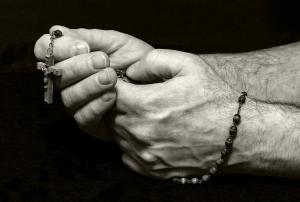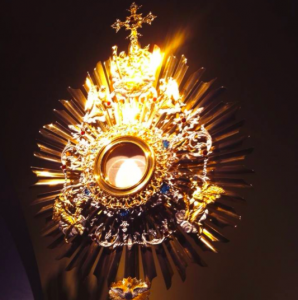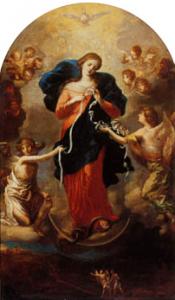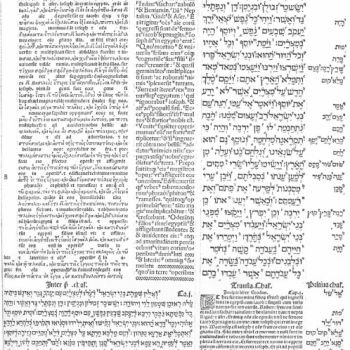What Is Even Going On Up There?
I’m not sure how clear this has been to my readers, and it certainly isn’t my most original quip, but I’ve been having a rough couple years.
To my surprise, the pandemic (in itself, anyway) has kind of been the least of my worries. My friends and loved ones have all stayed healthy, or come down at worst with fairly mild and uncomplicated cases of the disease. The financial side of things has been rougher; being able to work from home almost all the time helps, but I’m still not making enough to sock anything substantial away—which may prove to be a quite serious problem in thirty years or so. But, while living paycheck to paycheck is uncomfortable, the paychecks themselves have given me enough bridge to walk over to the next plank pretty consistently.

But it’s the emotional, social, and spiritual realms that had been particularly tough. Several of my Christian friends have left their faith behind over these few years, including one of my oldest and closest, whom I actually met through our blogging about Side B. Celibacy has remained a mystery to me, or rather not a mystery but a bafflement. Mystery tends to imply a feeling of reverence, a meaning that is not known (or least not articulate), but whose presence we feel. Celibacy, to me, feels like a blank, something arbitrary and purposeless. And even that might be manageable if you were doing it with someone, or a group of someones. Without that?
And, of course, there’s the abuse crisis. It’s a little startling to see how entirely indifferent the bishops are. They just … don’t care. Protecting the Church’s financial assets, avoiding legal liability—these, they care about. For these, they’ll hand a priest over to the authorities if they have to. Or they’ll lie to our faces about his innocence, if that what profits them.
How do you stay Catholic under those circumstances?
Deus Absconditus
Deeper still is the realization that I kind of don’t feel like I know God. Now, this would always be true on some level. Holiness means being other, being outside and above the ordinary world, and nothing is holier than God. We could no more comprehend God than a character from one of my stories could comprehend me.
But we are meant to know God in the person of Jesus. That’s why he came. And I’m running into a problem that may sound silly: I haven’t met Jesus.
I don’t mean that I don’t practice my religion. I’ve attended more Masses than I can count; I go regularly to Adoration; I read Scripture daily; I pray several times a day. But I’ve never met Jesus, the way I can meet my mom at a café for lunch, or a guy from an app for a hookup. I’ve spoken to him with my words and read the Bible—but that’s hardly the same thing as a conversation, is it? If a friend wrote you a book full of his stories and advice and reflections and gave it to you, you might well treasure it. But if he then stopped talking to you, expecting you to be satisfied with pouring your heart out to him and then just reading from his book, even though he is 100% able to talk to you, that would be weird, right?

Fides Quærens Intellectum
My conversion was originally a mostly intellectual affair. Theism made more sense to me than atheism; Christianity made more sense than other forms of theism; and Catholicism made more sense than other forms of Christianity. I’d say the same now. That has an unfortunate catch in it, however.
It’s not faith.
“This makes the most sense” isn’t faith. At most, it’s a theory. Not that there’s anything wrong with espousing a theory; it can be the most honest course of action available. Faith is something else—something supernatural. I kind of wonder whether I have it at all sometimes; on hypothesis, I must have some degree of it, since I’ve been baptized and confirmed, but I don’t really know how to recognize it or think about it. I guess I thought faith would make my life and experience … not like this.
Hail, Star of the Sea
My devotion to the Mother of God forms kind of an index to my larger life of faith, I think. The idea of venerating Mary has always made complete sense to me, both theologically and affectively. From the first time I heard Luke 1.26-38, I was shocked by the fact that an angel would show such reverence for a human being—especially since, as I then believed, she was a sinner and St. Gabriel was not. I was defending the very title “Mother of God” to classmates and friends from church at a time when I still believed the Catholic Church was the Whore of Babylon; I terrorized one of my Sunday school classes by calmly suggesting that the woman clothed with the sun in Revelation 12 was the Blessed Virgin. My heart sang over the doctrine of her assumption, her images and apparitions, and her many royal titles.
But one of the most celebrated maxims of St. Thérèse—and if I may expose my own prejudices for a moment, I think a Carmelite Doctor of the Church is very much to be trusted when it comes to how we think about the Mother of God—is that Mary is “more mother than queen.” That’s always been opaque to me. To revere her is second nature; to confide in her, take comfort in her, find her familiar? No way. Intimacy feels a little indecent, and rather frightening, considering who I am and what she is. About the closest I can come to it, based on my own natural feelings, is the thought that it must be a great bore to be a queen if everybody holds you at arm’s length like that. (Which, who knows—maybe there’s more in that feeling than I realize.)

I’m committed to the thesis that Mary is more mother than queen: I’d defend it in a debate, for example, and I would even care about winning such a debate. But relating to her more as a mother than as a queen is something I’m not sure I know how to do, or sure I want to do, either.
My faith in God, such as it is, is much the same. “Our Lord”? I’m down. “Our Father”? Fat chance.
The Experiment
I’ve been blogging at Mudblood Catholic for nearly ten years now—next January will make it an even ten, if I recall correctly. I was thinking about wrapping up at that point; I kind of feel like I’ve said most if not all of what I have to say in this medium.
Coincidentally, one of the things that I think makes faith a lot harder than it needs to be is bad instruction, even about the most basic elements of Catholicism. In listening to people who’ve left the faith, I’ve invariably heard what seemed to me like serious distortions, usually presented to them by people they had good cause to trust, asserted to be the pure milk of the Church. (Before anyone gets on their high horse about “Well then they were trusting men instead of God” or any of that drivel: I have also heard these distortions from most people who have not left the Church, apparently because the men they trust haven’t let them down badly enough for it to matter yet.)
So I’d like to try an experiment. This may be a closing series for the blog, or if not, it’ll almost certainly be the start of a very different phase. I want to go through the basics of Catholic Christianity, explaining them in the most familiar, accessible terms I can figure out; and I want to see if I can articulate the difference between accepting the Catholic hypothesis, as I do, and having faith, as I maybe do. Hopefully it’ll be useful to me to look at things squarely, and perhaps other people can make use of it too.












